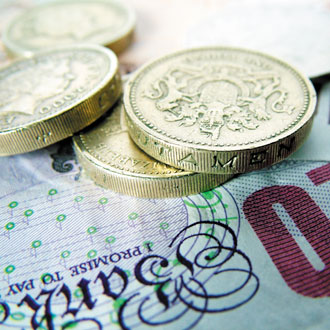
Conservatives
The party has pledged that it will invest an additional £8bn in funding each year in the health service until 2020 as demanded by NHS England chief executive Simon Stevens to deliver his Five Year Forward View.
Prime Minister David Cameron has previously said at the party’s annual conference in September last year, that the NHS budget would be ring-fenced if the Conservatives win the next election.
How much of this additional funding will be given to GP practices is hard to predict, but the signs are good. As part of a down payment on NHS England’s five-year plan, chancellor George Osborne last year vowed to invest £1bn to ‘modernise’ GP surgeries over the next four years – in a bid to support Mr Steven’s five-year plan, which outlines plans for GP surgeries to grow and employ specialists and integrate more closely with mental health and social care.

Labour
The Labour party has committed to spending an extra £2.5bn on the NHS each year to train 8,000 new GPs, 20,000 nurses, 5,000 more care workers and 3,000 more midwives.
Mr Miliband has said that its ‘Time to Care Fund’ will guarantee that patients will wait no longer than one week for vital cancer tests and results by 2020, as well as funding new staff to enable it to meet its pledge to guarantee that patients can get a GP appointment within 48-hours.
However, the Labour leader has said he will raise the extra £2.5bn through a ‘mansion tax’ on properties worth more than £2m and taxes on tobacco companies.
The party has also said it would ‘respect’ the recommendations of the independent pay review body on any increase to GP pay if successful in the election.

Liberal Democrats
The Liberal Democrats have promised to match Mr Stevens’ demand for a real terms increase in NHS funding of at least £8bn a year by 2020, starting with an extra £1bn a year until 2018.
They have also promised a £250m ‘transformation fund’ that will be used so that patients can book more appointments online and be seen over Skype.
But they have already put strings on where this money is spent, with £3.5bn allocated to mental health care in England and £2.5bn to relieve the pressure on hospitals. The party claims that this means they will spend £17bn more on the NHS compared with the Tories, but how they came to this figure is unclear.

UKIP
UKIP, meanwhile, has said it will spend £3bn more on NHS frontline services – to allow it to train a further 8,000 GPs to ‘cut GP appointment waiting times and increase GP access, although this money will come from the savings of leaving the EU, which presumably will take some time.

Green Party
The Greens will spend £12bn more a year on the NHS and boost the proportion of funding for primary care to 11%, as demanded by the RCGP and GPC.
The promise is outlined in the party’s manifesto, with its NHS policies heavily focusing on an expansion of primary care and preventing illness. The party are also pledging to encourage ‘cooperation’ between all primary care providers, improve air pollution levels, and treat drug addictions as a ‘health problem rather than a crime’.

Scottish National Party
The Scottish National Party has said that it would lobby for an increase in funding of the NHS budget of £24bn by 2020/21, the largest spending promise yet by any of the main political parties.
Under SNP plans, this would be funded by the scrapping of the Trident nuclear weapons programme, releasing £100bn to invest into areas such as health and education.
Of this, £24bn should be spent on the NHS across the UK, £9.5bn above inflation, including £2bn in Scotland.
Pulse reality check
There are a lot of large numbers being banded around at the moment to prove each party’s committment to the NHS, but looking more closely at the figures, the squeeze on the health service is set to get worse, not better.
Only Labour and UKIP have failed to commit to the real-terms increase in funding demanded by NHS chief executive Simon Stevens to deliver his Five Year Forward View. But even for those promising the £8bn, Mr Stevens’ calculations are predicated on the NHS itself delivering efficiencyimprovements amounting to £22bn – equivalent to 2% to 3% a year. This is a huge ask for a service already struggling.
Figures recently published by the Health Foundation show that between 2009/10 and 2013/14 efficiency improved by an average of just 0.4% a year. Crude productivity fell by almost 1% a year in both 2012/13 and 2013/14.
The truth is that there is a whacking great big black hole emerging in the NHS finances that is going to be very hard to plug and none of the main parties have the courage to tell the public before the election.
 <<< Back to Pulse reality check
<<< Back to Pulse reality check
Pulse October survey
Take our July 2025 survey to potentially win £1.000 worth of tokens













